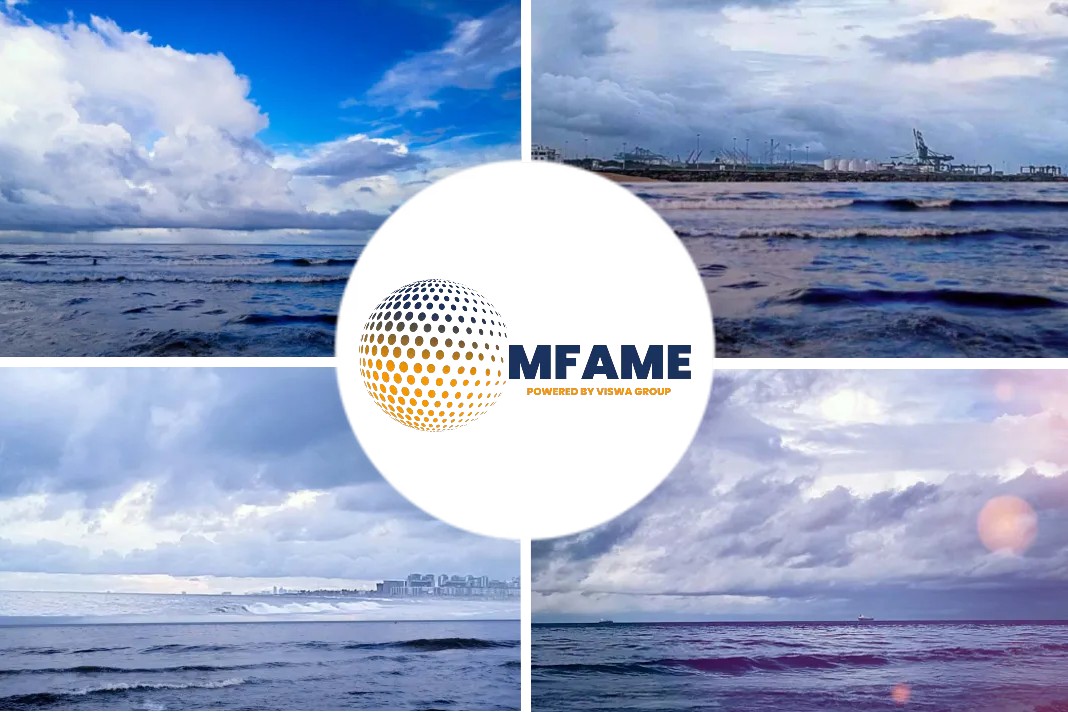 Bio UV Group of France has designed a new series of Bio-Sea ballast water treatment system (BWTS) units, which are compatible with flow rate requirements of more than 2100m3/h, says an article published in Clean Shipping International.
Bio UV Group of France has designed a new series of Bio-Sea ballast water treatment system (BWTS) units, which are compatible with flow rate requirements of more than 2100m3/h, says an article published in Clean Shipping International.
About the new M-Series
The new M-Series BWTS incorporates a novel reactor arrangement designed to increase the flow rate capacity of existing technology without the need for any manifolds.
Xavier Deval, Business Director Bio-Sea, said: “This is a huge development in ballast water treatment. With the M-Series we see a significant benefit in terms of size, capacity and installation simplicity. A manifold-free design allows shipowners to optimise installation time and costs dramatically, while keeping the number of reactors required to an absolute minimum; only one or two depending on the required flowrate.”
Bio-Sea system
Deval explained that while the new version is based on the same technology inherent to previous incarnations of the Bio-Sea system, it is the development of the ‘M’ reactor itself that has allowed the company to advance the product.
Evolution of Bio-Sea system
“The evolution of the Bio-Sea system means ship owners and shipyards now have a high-capacity ballast water treatment system from a unit that incorporates fewer UV lamps than competing systems in the market,” he said. “For a 300m3/h capacity system we can treat the volume with just one two-lamp M02 reactor. For a flow rate of 1040m3/h one seven-lamp M07 reactor would do the job, while a pair of these will be able to deal with 2100m3/h. With the installation of additional reactors, a maximum flow-rate capacity of 4000m3/h can, theoretically, be achieved.”
About the design
A range of ‘M’ reactors have been designed for different capacity requirements.
These include:
- the M02 for flow rates between 190 and 300m3/h,
- the M04 for 500 to 600m3/h flow rates,
- the M05 (500 to 750m3/h),
- M07 (760 to 1040m3/h),
- M08 (1040 to 1200m3/h),
- M10 (1040-1500m3/h), and
- the M14 for 500-2100m3/h flow rates.
Reduce system footprint and integration costs
In effect, Bio-UV Group has together with its own integrated engineering department developed a downscaled version of its existing UV technology to reduce system footprint and integration costs by at least 25%.
All environmental testing and UV dosage tests have been done under DNV supervision. IMO and USCG certification documents are imminent.
The M-series availability
Available as a modular or skid system and with fewer components resulting in a reduced risk of corrosion, the M-series is available with a short lead time. A number of units are already on the shelf for immediate delivery. Bio-UV Group will continue to manufacture and support the Bio-Sea B-Series, since there are components and spare parts common to both treatment systems.
Bio-Sea installations
Several hundred Bio-Sea installations are currently operating on a range of vessel types, including containerships, bulk carriers, multi-cargo vessels, cruiseships, passenger ferries, offshore vessels, naval ships and mega-yachts.
Did you Subscribe to our daily newsletter?
It’s Free! Click here to subscribe
Source: Clean Shipping















